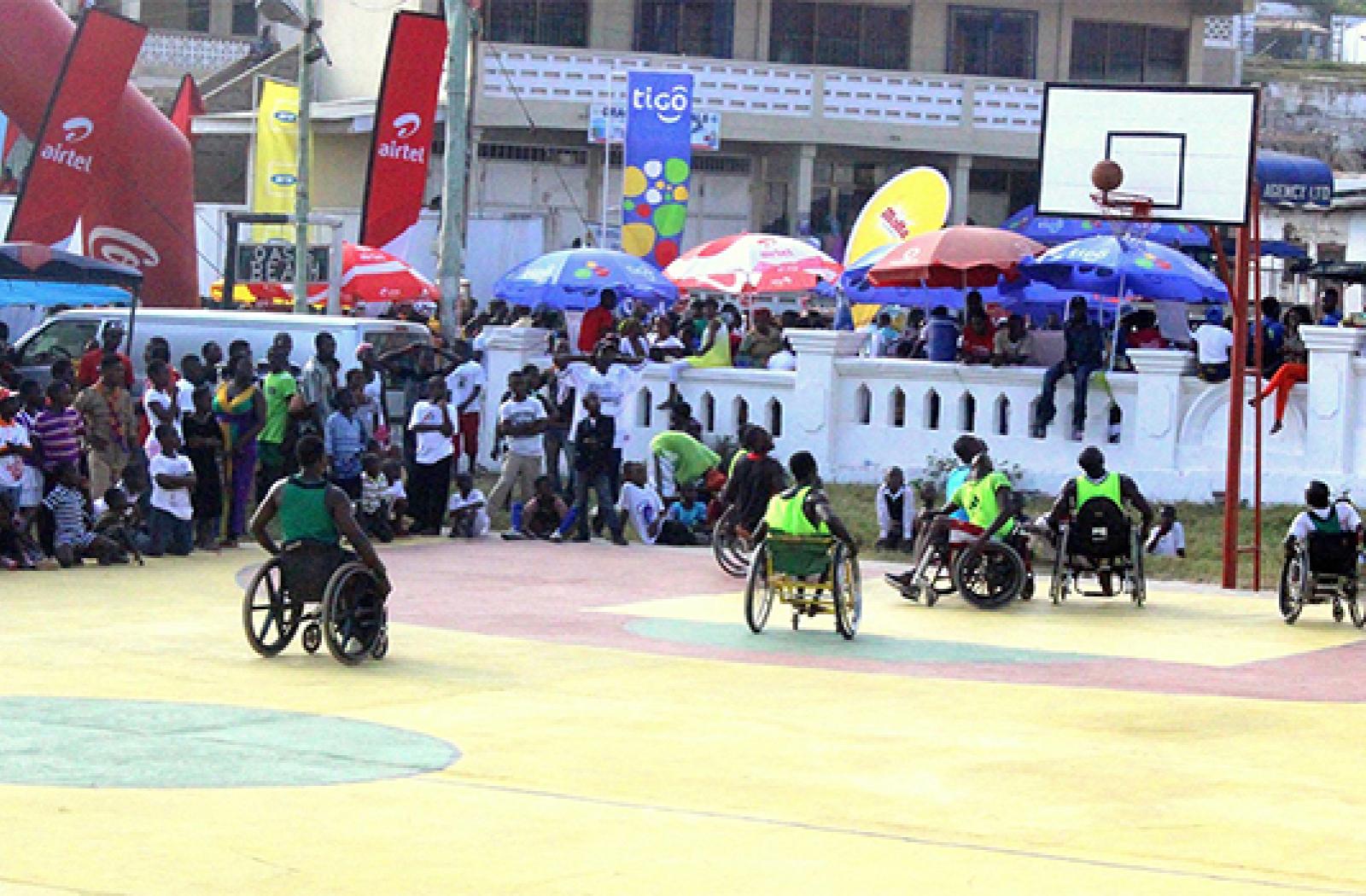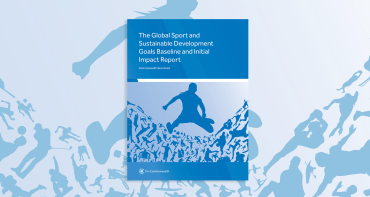To maximise the impact of sport at community level, new tactics are needed that mainstream sports policy into national development plans. The newly adopted Kazan Action Plan provides a game plan for governments to do this.

To maximise the impact of sport at community level, new tactics are needed that mainstream sports policy into national development plans. The recently adopted Kazan Action Plan provides a game plan for governments to do this, writes Oliver Dudfield, Head of Sport for Development and Peace at the Commonwealth Secretariat.

The new tactics are more expansive, promoting sport in the context of the broader policy agenda for sustainable development and maximising the economic, social and environmental development returns of investing in sport.
The Kazan Action Plan articulates this tactical overhaul through its alignment to the Sustainable Development Goals (SDGs).
For many years, the Commonwealth has been a vocal advocate of the need to align sports policy to broader development agendas. Last year’s Analysis and
guidelines produced by the Commonwealth Secretariat on sport and the SDGs have provided an impetus for this commitment.The Commonwealth Secretariat’s policy work on sport and the SDGs, along with contributions from other experts and stakeholders, helped to frame the key component of the Kazan Action Plan, the MINEPS Sports Policy Follow-up Framework. This framework now provides a valuable tool to help countries to ‘change tactics’ and align sports policy to national development action plans and the SDGs.
The Commonwealth Secretariat is already using this approach to support the technical assistance we provide to member governments in strengthening sports policy and strategy. This is already making a difference in Mauritius, Botswana and Zambia, to name just a few countries.
This sector-wide change in tactics has been gaining momentum with many government partners and other stakeholders intentionally using sport to deliver non-sport development outcomes. The International Platform on Sport and Development provides an insight into the breadth of sport, civil society and academic institutions involved in this area and is a valuable resource for policy-makers and practitioners seeking further information and resources.
The growing engagement of the research community has also been especially influential. The critical lens of academia provides an important counterweight to ill-informed advocacy of the impact of sport. It can also provide a vital evidence base and resource for decision-makers to enable effective planning and delivery. The Journal of Sport and Development is a useful starting point to access this growing body of research.
To date, the interest in sport among government and ‘mainstream’ development organisations has not matched that of sporting organisations, civil society and academia. While this is shifting, as evidenced by recognition of sport as an ‘enabler of sustainable development’ in the 2030 Agenda for Sustainable Development , issues of scale, impact and governance are important to consider.
With few exceptions, most related to health enhancing physical activity , evidence of the contribution that sport can make to broader sustainable development outcomes is not at scale. It is drawn from the monitoring and evaluation of smaller interventions and pockets of academic research.
Convincing decision-makers that resourcing sports policy will provide a valuable return on investment is a challenge. This requires data-driven and context-specific arguments, ideally at scale. Moreover, these decision-makers must be confident the sector is well governed, transparent and upholds the highest standards of integrity.
To that end, three actions central to the Kazan Action Plan stand out:
- presenting evidence-based arguments for investments in physical education, physical activity and sport;
- developing common indicators for measuring the contribution of physical education, physical activity and sport to prioritised SDGs and targets; and
- unifying and further developing international standards supporting sport ministers’ interventions in the field of sport integrity.
These actions will be key areas of focus for the Commonwealth Secretariat. To advance these actions, new partners must be engaged in the conversation. National statistical offices, treasury officials, anti-corruption agencies, social policy stakeholders, environmental scientists, economists and data analysts need to be recruited to assist sports policy-makers, sporting organisations and civil society actors to frame sports policy direction.
The change in tactics signalled by the Kazan Action Plan can help promote sports policy in national policy priorities and budget allocations. But continued reliance on small-scale programmes and time-bound projects, and lack of progress in strengthening governance across the sector, will not keep sports policy in this higher division. Executing a new game plan focused on delivering well-governed and sustainable health, social inclusion and economic returns for a much larger percentage of the population will be key. This is a whole new ball game.
About the author
Oliver Dudfield is the Head of Sport for Development and Peace at the Commonwealth Secretariat. He has extensive experience working across government, sporting and civil society organisations to develop policy and strategy to enhance the positive contribution of sport to human and social development. He is currently Chair of the Steering Board for the International Platform on Sport and Development, the Commonwealth representative on the Permanent Consultative Council of UNESCO’s Intergovernmental Committee on Sport and Physical Education and a Global Professional Fellow of the University of Edinburgh’s Academy of Sport.
The Commonwealth Secretariat provides guidance on policy-making, technical assistance and advisory services to Commonwealth member countries. The organisation supports governments to help achieve sustainable, inclusive and equitable development. In the area of sports policy, the Secretariat assists governments to strengthen policy and strategy aimed at promoting and protecting the contribution of sport to sustainable development.
Learn more at http://thecommonwealth.org/sport-development-and-peace


